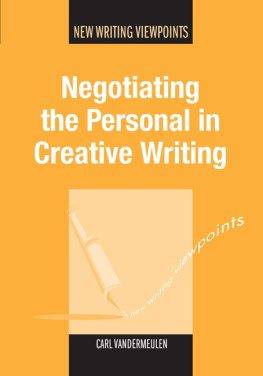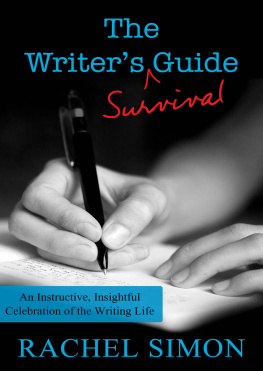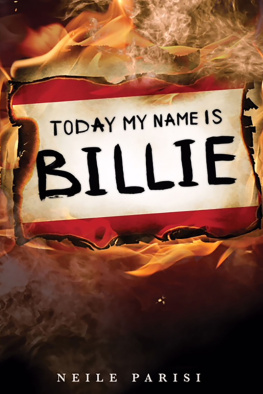The overall aim of this series is to publish books which will ultimately inform teaching and research, but whose primary focus is on the analysis of creative writing practice and theory. There will also be books which deal directly with aspects of creative writing knowledge, with issues of genre, form and style, with the nature and experience of creativity and with the learning of creative writing. They will all have in common a concern with excellence in application and in understanding, with creative writing practitioners and their work, and with informed analysis of creative writing as process as well as completed artefact.
Full details of all the books in this series and of all our other publications can be found on http://www.multilingual-matters.com, or by writing to Multilingual Matters, St Nicholas House, 3134 High Street, Bristol BS1 2AW, UK.
Dediction
I dedicate this work to my best teachers, who took teaching personally, who respected the persons entering their classrooms and who expected us to take a personal interest in the work that brought us together: Dorothy Edwards (kindergarten), Stanley Wiersma (Calvin College), Wayne Knutson (University of South Dakota), Robert Brooke, Joy Ritchie and Kate Ronald (University of Nebraska).
Library of Congress Cataloging in Publication Data
A catalog record for this book is available from the Library of Congress.
Vandermeulen, Carl.
Negotiating the Personal in Creative Writing/Carl Vandermeulen.
New Writing Viewpoints
Includes bibliographical references.
1. Creative writingStudy and teaching. 2. Writing centers.
PE1404.V36 2011
808 042071dc232011028013
British Library Cataloguing in Publication Data
A catalogue entry for this book is available from the British Library.
ISBN-13: 978-1-84769-438-6 (hbk)
ISBN-13: 978-1-84769-437-9 (pbk)
Multilingual Matters
UK: St Nicholas House, 3134 High Street, Bristol BS1 2AW, UK.
USA: UTP, 2250 Military Road, Tonawanda, NY 14150, USA.
Canada: UTP, 5201 Dufferin Street, North York, Ontario M3H 5T8, Canada.
Copyright 2011 Carl Vandermeulen.
All rights reserved. No part of this work may be reproduced in any form or by any means without permission in writing from the publisher.
The policy of Multilingual Matters/Channel View Publications is to use papers that are natural, renewable and recyclable products, made from wood grown in sustainable forests. In the manufacturing process of our books, and to further support our policy, preference is given to printers that have FSC and PEFC Chain of Custody certification. The FSC and/or PEFC logos will appear on those books where full certification has been granted to the printer concerned.
Typeset by The Charlesworth Group
Printed and bound in Great Britain by The MPG Books Group
Contents
Acknowledgements
That writing is a collaborative rather than an individual achievement is evident most of all to an author finishing a book. Here are some of those to whom I'm grateful:
- To Anna Roderick and Graeme Harper for their confidence in my work and for the opportunity I now have to see it in the excellent company of the other contributions to creative writing studies that make up the New Writing Viewpoints series from Multilingual Matters.
- To students in my creative writing classes at Northwestern College (Iowa) who consented to my use of their work, and especially to the students in the 2000 and 2002 classes in Reading and Writing Poetry who agreed to be interviewed in order to help me understand the mysterious interpersonal dynamics that can occur among those collaborating to become writers of the artistic genres.
- To my colleague Joonna Trapp, who sat in on my Y2K class, helped me reflect upon what was happening in it, interviewed most of the students afterwards, responded to drafts of chapters and all along offered the kind of wholehearted encouragement that has earned her the gratitude of hundreds of students and colleagues.
- To students Brina Wiuff and Susanne Stahl Kosec for studying my 2002 classes and writing conference papers with me about my courses.
- To other colleagues, especially Amy McCann, Barbara Turnwall, Kim Van Es, Joel Westerholm and Jeff and Karen Barker.
- To Northwestern College, for a $10,000 research grant that enabled me to hire a student assistant and to travel and interview fellow creative writing teachers in the Midwest.
- To Hannah Dutt Elder, my student assistant, for help with contacting teachers and for invaluable help with thinking through what they were telling us.
- To creative writing teachers who responded to my survey and follow-up email, and especially to those who welcomed me into their classes and took time from busy lives for an interview. I am most indebted to Jim Heynen, Gina Franco, Carolyn Holbrook, Joey Horstman, Anna Leahy, Mary Swander, Jill Baumgaertner, Laura Apol, Martin Cockroft, Barbara Bogue, Jack Ridl, Andy Mozina, Nicole Mazzarella, Lisa Percy, Ryan Pendell and Eliot Khalil Wilson.
- To Cobus and Alida Du Preez and to Fred Hoffman, all of Tzaneen, Limpopo, South Africa, for offering their homes as places to live and write and for providing their good company as well as the rousing accompaniment of vervet monkeys, baboons, praying mantises, spotted owls, louries and hadedas.
- To my wife, Amy Fichter, a photographer and a professor of life drawing, for countless conversations about the art of teaching in the arts and for sharing the conviction that this teaching humanly matters.
Introductions
Negotiting the Personl and Interpersonal
The interaction that goes on in teaching is not just between minds and information but also between persons, even in the university setting. If our job is partly teaching, not just research, then we have to care about relationships and persons.
Peter Elbow (1990: 207)
I began this writing on sabbatical in South Africa, in a region almost as hazardous as it is fascinating. A short walk from where I lived in subtropical Limpopo runs the Ramadipa River, its brief meander shrouded by towering trees, its banks obscured by tangled grass. I walked through its bordering ribbon of jungle on an abandoned stretch of highway to a crumbling bridge over the river, railings on both sides stripped away. Nearby, down a just-visible two-track, a clearing set in a bend in the river held a huge picnic table and braai (barbecue) a wayside abandoned along with that stretch of highway.
I walked there again and again for the mystery of the place. But I always approached with caution because my host had warned, Be watchful, adding two particulars: Hippos sometimes come up this far, and you don't want to get caught between a hippo and his water; and If you go out in the evening, wear shoes and jeans because of the snakes. I learned that the snakes include the green mamba, the black mamba, the spitting cobra and the lazy puff adder, who turns aggressive if you step on him. All are venomous, as is a tiny tree snake that mimics a branch. Out there somewhere too is the python, not venomous, also not tiny.
The personal and interpersonal wilderness of the creative writing course holds its own fascinations but also its hazards, many of them hidden. Things can go wrong and people can get hurt. One of my motives for this writing can be put in a word that also comes from South Africa. Post-Apartheid leaders Nelson Mandela and Bishop Desmond Tutu lifted up the ideal of ubuntu, which means that pain caused to one person is felt by all, including the one who inflicts it, just as an act of generosity to one benefits all, perhaps especially the benefactor. So in the spirit of











